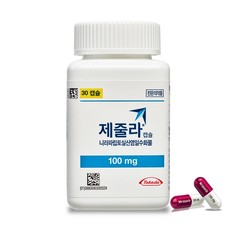Takeda Korea said its ovarian cancer treatment Zejula would receive expanded health insurance coverage as maintenance therapy for breast cancer (BRCA) susceptibility gene-mutated ovarian cancer patients who responded to first-line platinum-based therapy from Friday.

Under the latest revision, the government will reimburse the treatment as maintenance therapy for patients with advanced BRCA-mutated epithelial ovarian cancer, fallopian tube cancer, and primary peritoneal cancer who have responded (complete response or partial response) to first-line platinum-based therapy.
Considering that Zejula had received reimbursement as maintenance therapy for platinum-sensitive relapsed BRCA-mutated recurrent highly serous ovarian cancer that responded to second-line or higher platinum-based treatment and as a treatment regimen for BRCA-mutated highly serous ovarian cancer in the fourth-line or higher, Zejula is the first poly ADP-ribose polymerase (PARP) inhibitor in Korea to receive benefits at all stages of treatment for BRCA-mutated ovarian cancer patients.
Zejula has confirmed its clinical efficacy as first-line maintenance therapy for ovarian cancer through the PRIMA phase 3 clinical study.
Zejula showed a median progression-free survival of 22.1 months, more than twice that of a placebo, in patients with BRCA mutations in the HRd group and reduced the risk of disease progression or death by 60 percent.
The post-mortem analysis of the PRIMA clinical trial published in March this year confirmed a treatment effect in patients with a high risk of ovarian cancer with an increased risk of recurrence and difficulty to treat. It also can manage hematologic adverse events without losing effectiveness through individual patient-specific doses, new safety issues, or major risks.
It is the only PARP inhibitor that patients can receive once a day in Korea, improving the convenience and compliance of patients.
"Because ovarian cancer has a high risk of recurrence, primary maintenance therapy is one of the most important factors in terms of the possibility of improving the treatment prognosis," Korean Society of Gynecologic Oncology President Kim Young-tae said. "Zejula not only filled the unmet need that existed in the ovarian cancer treatment environment but also improved the quality of life of patients through once-a-day dosing and patient-specific dosage prescription."
As the first-line maintenance therapy for ovarian cancer has become more important worldwide, local patients must be able to receive Zejula treatment benefits with the reimbursement of the drug, Kim added.

